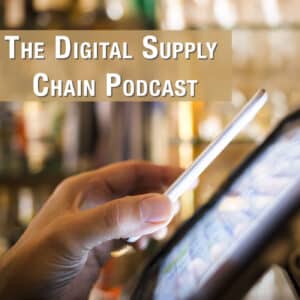In the Huntsville Business Journal, James Crean talks Smart Factory Manufacturing and Technology, emphasizing the importance of making innovation a part of the business plan.
It’s a great time to be in manufacturing and Huntsville is quickly becoming the pre-eminent manufacturing hub of the South.
Advancements in technology promise to deliver solid returns on investment while realizing cost savings over the long haul.
As technology continues its rapid growth and development trajectory, the shop floors are becoming “smart factories” to meet demands for high quality, low cost, and speed.
Modern-day production facilities bear little resemblance to the factories of our parents or grandparents.
For a manufacturing plant embracing new technology, the highest costs are faced on the front end: acquisition, transition, training, and implementing. This is usually the sticking point when it comes to adopting new technology, especially when companies have been working with Lean and Six Sigma methodologies, with some measure of success.
“Innovation matters and it has a big impact,” said James Crean, Co-Founder and President of Austin, Texas-based CREAN, Inc. “Hoping that it doesn’t happen is not a solution.”
Speaking at the recent Technology Interchange Symposium hosted by the Society of Manufacturing Engineers and the National Defense Industrial Association Manufacturing Division, Crean said several former industry giants, such as Sears’ and Kodak’s “failure to capitalize on the online revolution, combined with the inability to innovate processes and service offerings caused them to fail.”
Some, like the United States Postal Service, he said, “literally need an act of Congress to innovate.”
Crean discussed the business life cycle and need for innovation and continuous improvement.
“Company mortality is accelerating the growth-peak-decline cycle; the average business lifecycle is now 7 to 10 years,” said Crean. “This negatively impacts the supply chain, such as acquiring parts, for example. If a business doesn’t make innovation a part of their business plan, they risk extinction.
“Are they even going to be in business in five years?
“Continuous improvement must continuously evolve,” said Crean. “Digital transformation cannot be ignored; companies and their suppliers must not fall behind. Lean programs are no longer sufficient. Six Sigma can only take us so far. In fact, we’re getting left behind.”
And it’s not just companies, it’s countries, as well.
“Back in the ‘70s, Japan started eating our lunch in the auto and electronics industries,” said Crean. “Then, the Chinese entered the electronics market with faster and cheaper products. Japan failed to adopt driver assist, now the Chinese are the industry leaders.”
He said, “Product is good, but process is just as important. Smart factory goes beyond the factory floor. You can’t focus on the factory floor alone. Digital transformation cannot be ignored; companies and their suppliers must not fall behind. America must lead the Smart Factory transformation. We have to disrupt ourselves. If we don’t do it, China or another country will.
“As a national security imperative, it is critical that the U.S. lead the global industrial base. The countries with a smart factory base will dominate the defense markets.”
Crean Inc. is a Woman-Owned Small Business (WOSB) for U.S. government contracting purposes as well as the manufacturing industry sector. Crean Inc. provides services to industries looking to be at the cutting edge of innovation in engineering and Smart Factory technology & manufacturing production operations.Source: Huntsville Business Journal



